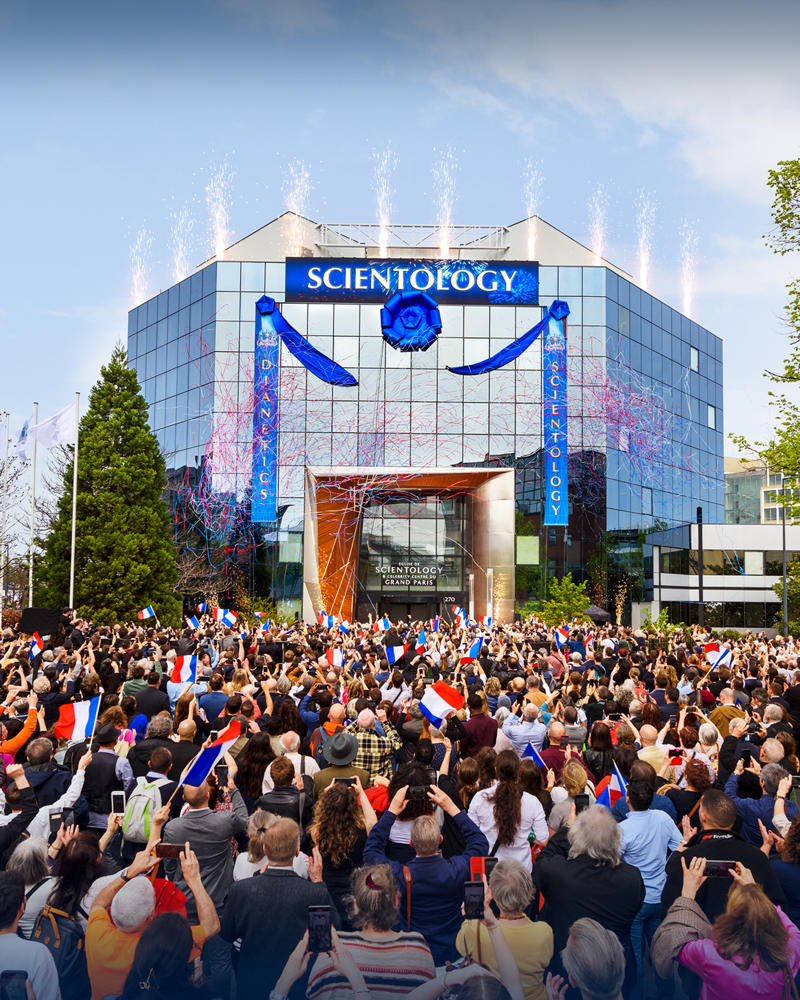Recognizing Scientology: A Comprehensive Guide to Its Beliefs and Practices
Recognizing Scientology: A Comprehensive Guide to Its Beliefs and Practices
Blog Article
Unmasking Misconceptions: Separating Truth From Fiction Concerning Scientology

Origins of Scientology
The beginnings of Scientology trace back to the mid-20th century when L. Ron Hubbard, a scientific research fiction writer, founded the idea system in the 1950s. Hubbard's development of Scientology came from his earlier self-help system called Dianetics, which he presented in the 1940s - Scientology. The transition from Dianetics to Scientology marked a shift towards an extra thorough religious viewpoint that incorporated elements of psychology, Eastern spiritual practices, and Hubbard's very own concepts on human existence
Hubbard's exploration into the human mind and spirit resulted in the development of Scientology as a faith focused around the principle of spiritual knowledge and self-improvement through a process called auditing. Auditing, a form of spiritual counseling, aims to help individuals overcome psychological and emotional barriers, called engrams, that hinder personal growth and awareness.
As Hubbard's teachings gained appeal, Scientology evolved into a worldwide motion with a substantial following. Regardless of conflicts and objections bordering its methods and beliefs, Scientology remains to draw in followers seeking spiritual fulfillment and individual growth.
Core Ideas and Practices

An additional basic facet of Scientology is the principle of the Thetan, the spiritual significance of a person that goes beyond the physical body. Followers aim to understand and strengthen their connection to the Thetan through various practices such as study courses and filtration routines.
The Church of Scientology likewise puts a strong emphasis on the significance of individual responsibility and the idea that people have the power to shape their own fates. With adherence to ethical standards and the pursuit of self-improvement, professionals of Scientology strive to achieve greater degrees of joy, success, and spiritual satisfaction.
Debates and Criticisms
In the middle of Scientology's core beliefs and practices exists a landscape noted by debates and objections that have actually sparked extreme discussion and examination. One of the significant criticisms leveled against Scientology is its secretive nature and the alleged exploitation of its participants. Former participants have spoken out concerning feeling pressured to donate large amounts of money to the Church and encountering harsh effects if they try to leave. Additionally, Scientology's standing as a tax-exempt religious company in some countries has actually been a factor of contention, with doubters suggesting that its techniques are much more akin to a business than a religious beliefs. Scientology.
Another location of debate borders the Church's therapy of critics and skeptics. Records have emerged of harassment, intimidation, and lawful hazards directed at those who view it talk out versus Scientology. This has actually raised worries concerning free speech and the company's dedication to openness and accountability.
While Scientology has emphatically refuted most of these accusations, the disputes and objections bordering the Church proceed to sustain public uncertainty and analysis.
Scientology's Impact in Culture
Scientology's impact prolongs to the realm of psychological health, where its sights on psychiatry and psychology have triggered arguments within the clinical community. In the world of home entertainment, Scientology's organization with prominent celebs has actually brought focus to the religious beliefs, both favorably and negatively. The participation of famous numbers in Scientology has, in some cases, served to promote the religion, while in others, it has actually attracted criticism and elevated questions concerning the church's practices and beliefs.
Debunking Common Misconceptions
What misconceptions regarding Scientology are commonly held and exactly how can they be disproved? One common misconception regarding Scientology is that it is a cult. Nonetheless, the Church of Scientology is legally acknowledged as a faith in numerous nations, consisting of the USA, where it has tax-exempt status. Like other faiths, Scientology provides spiritual assistance and methods for its participants.
Another mistaken belief is that Scientology requires its participants to reduce connections with their family members. In truth, the church highlights the value of family members partnerships and urges participants to keep healthy and balanced links with their enjoyed ones.

Final Thought
Finally, it is necessary to separate fact from fiction when going over Scientology. By examining its origins, core beliefs, debates, and influence in society, we can expose common misunderstandings surrounding this religious beliefs. It is important to approach the topic with a unbiased and essential mindset in order to understand Scientology properly and without prejudice.
Rooted in a structure of spiritual enlightenment and personal growth, Scientology's core ideas and methods include a diverse range of concepts and routines. Central to Scientology is the belief that humans are never-ceasing spiritual beings that have forgotten their real nature. The involvement of well-known figures in Scientology has, in some instances, served to popularize the faith, while informative post in others, it has attracted objection and raised questions concerning the church's methods and beliefs.
The Church of Scientology is legally identified as a religious beliefs in numerous nations, including the United States, where it has tax-exempt status. Like various other religious view it beliefs, Scientology provides spiritual support and practices for its participants.
Report this page